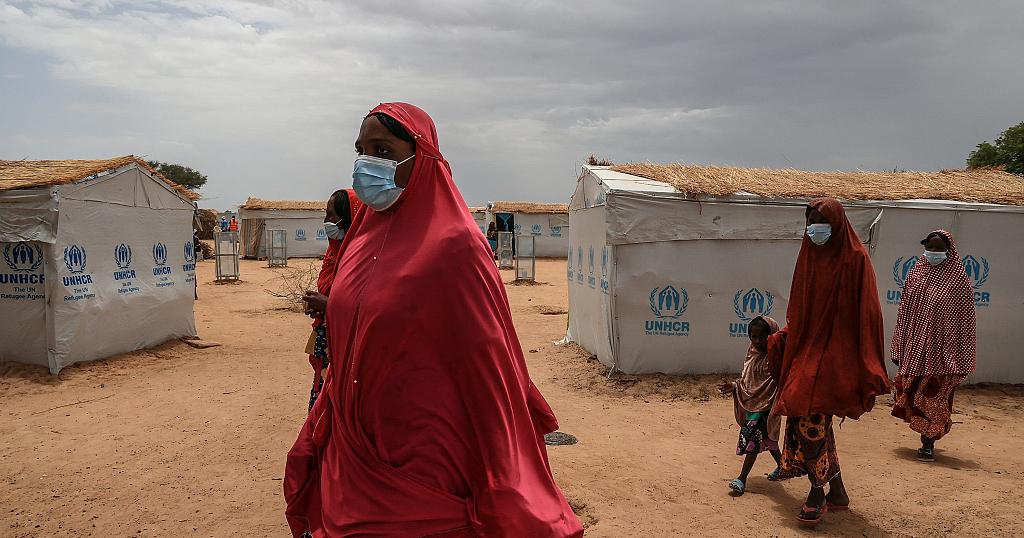256
 |
| Bogo IDP camp during a field visit by Filippo Grandi, UNHCR in Maroua on April 28, – Copyright © africanews DANIEL BELOUMOU OLOMO/AFP |
UN High Commissioner for Refugees, Filippo Grandi has urged for stronger support for internally displaced persons, refugees, and host communities in Cameroon’s Far North region.
The intercommunal conflict began last year after herders clashed with farmers and fishermen over dwindling water resources.
UNHCR and partners are doing what they can to provide emergency assistance and create more durable solutions to mitigate further conflict and bring peace to the local communities, according to Grandi.
“We have to support that reconciliation,” said Filippo Grandi, “because without reconciliation and without reconstruction, people will not go back, and they will, it will become a protracted humanitarian problem.
The conflict in the Far North was triggered by a dispute between herders and fishermen over dwindling water resources. At least 100,000 people have been displaced internally or fled to neighbouring countries.
In Bogo, where UNHCR set up a camp to provide shelter and other essential services for over 2,000 displaced people, a new tree planting initiative has been started to protect the environment. Grandi said, “When we help the displaced, can we do it in a manner that is friendly to the environment? And here I have seen very good examples of this. I have seen solar energy being used. We have planted, I have planted myself trees in a small reforestation project. I think it’s important that we also, we, the aid workers and the government, think of even humanitarian assistance in green terms, in environmental friendly terms, and it’s a small project, but a great example to the rest of the world.”
The Far North of Cameroon is a veritable crossroads of trading routes and cultures. Besides commerce, the local economy is based on agriculture, livestock farming, fishing, tourism, transportation of goods, handcrafts and hunting according to the international crisisgroup.
The fight against Boko Haram in the region, has exacerbated the already-delicate economic situation and placed under strain traditional socio-economic roles.

